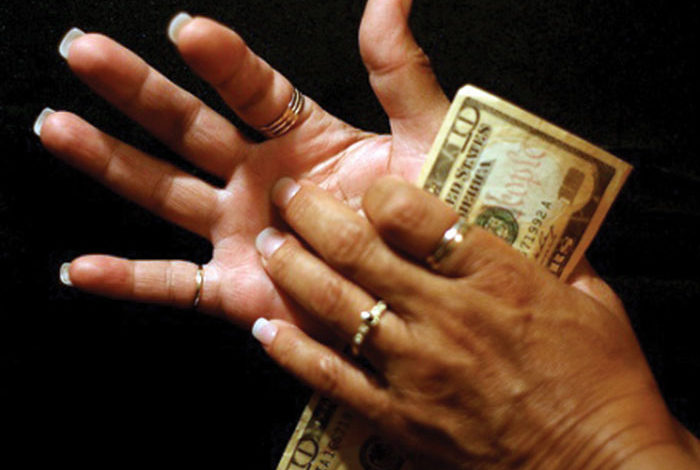
DEARBORN — Living in a city with a high percentage of Arab Americans can play a role in how prevalent superstitions are.
According to the young, they’re quite prevalent.
If at tata’s (grandma’s) house, grandchildren playing together are destined to run into some here and there.
“‘You can’t step over your little brother lying on the floor,'” Marwa, a 20-year-old college student, said her tata would yell. “My mom and she would also make us close open umbrellas before we walked in.”
According to her grandma, stepping over someone can stop the person on the floor from growing taller and opening an umbrella inside the house can cause a family death.
Marwa, who did not want to share her last name, said she doesn’t believe in superstitions, but also can’t undo what she was taught not to do.
“It’s so funny,” she said with a laugh. “There are so many more. I don’t believe in any of them, but they’ve become so customary.”
When asked if she’d teach these superstitions to her children, she said that she’s honestly unsure, but will try her best not to.
According to some, avoiding these bad superstitions was not only about listening to tata and mama, but about taking precautionary measures as well.
“I was honestly terrified of losing my parents,” an 18-year-old, who’d rather not share her name, said. “I opened the umbrella inside the house when I was around 8-years-old one time and started crying when my mom told me what could happen. I still remember it to this day.”
She said nothing happened, but she still never again opened that umbrella in the house. She added that another one she was really scared of was keeping her shoes upside down by accident.
“They say it is haram (forbidden) because it’s facing upwards, in the direction of God,” she said.
On regular days when walking, she said the outsole faces the ground towards Satan and it has to stay that way.
However, not all superstitions are bad. Arabs believe in good omens as well.
Suha Kassem, 30, said if a person itches their left hand, it’s believed he or she will get paid soon. She added that if someone breaks glass by accident, any evil embracing the family breaks
with it.
“I think I believe in the good sign that comes from glass breaking more than the other one,” she said. “I guess it’s because we always wait for something good. It might not come true, but it also doesn’t hurt.”
Kassem added that on her wedding day, her grandma, mother and aunts threw uncooked rice over her and her new husband. This common practice is believed to shower the newlyweds with prosperity, fertility and good luck.
“It was around seven years ago in Lebanon,” she said. “My husband was born and raised here, so he didn’t understand why they were doing that. When I explained to him, he laughed so much and told me how he doesn’t believe in any superstitions.”
She said it’s easier for men not to believe in them because during their childhood they are not as attached to the women in the family.
“If you think about it, Arab girls spend so much time with their mothers, grandmothers, aunts and later with their mother-in-laws when they get married,” she said. “They will eventually learn these practices and believe in them, involuntarily.”
Kassem said that superstitions are bound to be passed on from generation to another and that they have become unbreakable habits.






Leave a Reply